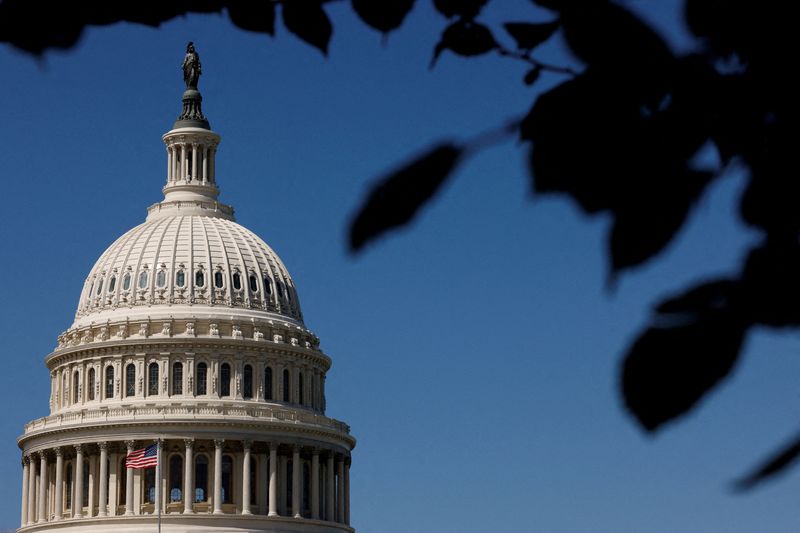By Richard Cowan
WASHINGTON (Reuters) - A bipartisan group of lawmakers in the U.S. House of Representatives late on Wednesday announced they had embraced a framework for legislation providing stopgap funds to avert government shutdowns starting on Oct. 1.
Without prompt action by Congress, existing money to fully operate a vast array of federal programs expires at midnight Sept. 30 with the end of the current fiscal year.
For months, far-right House Republicans have been demanding deeper cuts in federal spending than agreed to in bipartisan legislation this summer.
The 64 members of the House's "Problem Solvers Caucus" -- 32 Democrats and 32 Republicans -- issued a statement saying the group had voted to endorse a temporary funding measure that would run through Jan. 11, 2024.
The stopgap funding to keep the lights on throughout the federal government also would grant President Joe Biden his request for a new round of emergency funding for Ukraine in its battle to oust invading Russian forces, as well as new money for helping U.S. communities recover from natural disasters.
It was unclear whether this plan would gain traction in the deeply-divided House.
"The Problem Solvers’ proposal keeps the government open, addresses our nation’s longer-term fiscal health and includes fiscally responsible measures," said Democratic Representative Josh Gottheimer, a co-chair of the bipartisan caucus.
The group's framework also calls for establishing a new fiscal commission to "stabilize long-term (U.S. budget) deficits and debt," the statement said.
Between Oct. 1 and Jan. 11, Congress would work to pass and send to Biden the 12 regular appropriations bills to fund the government through Sept. 30, 2024, the caucus said. Funding would be set at the $1.59 trillion level approved earlier this year by the president and House Speaker Kevin McCarthy.

Shortly after that deal was struck, McCarthy backed away from it, bowing to demands from a group of about 30 very conservative Republicans who have been seeking an additional $120 billion or so in spending cuts.
The Problem Solvers Caucus plan also calls for new border security controls that would be operational through the end of next year. Details of that plan were not outlined, however.